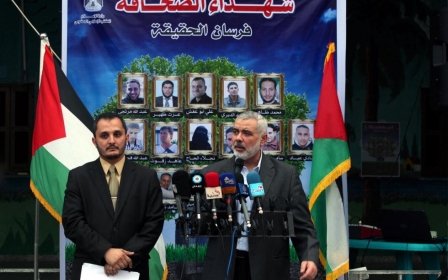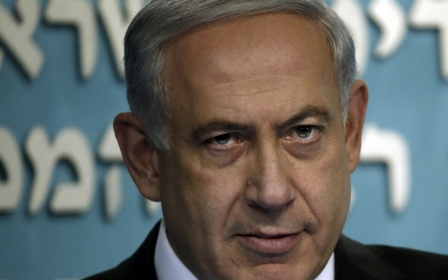Top Israeli official admits underestimating Gaza fighters

A senior army intelligence official has admitted that Israel underestimated the tenacity of Gaza fighters and did not expect a 50-day conflict to last so long, but he insisted they were soundly beaten.
The conflict, which ended with a ceasefire last week, killed more than 2,100 mainly civilian Palestinians, as well as 66 soldiers and six civilians on the Israeli side.
"If you'd asked me two months ago, I wouldn't assess that it's going to take us 50 days," the official told journalists in English at a briefing in Tel Aviv late Tuesday.
"We thought it's going to take them a shorter time to understand what happened, and we are mistaken here. It's a tactical assessment mistake, but it's a mistake," said the official, speaking on condition of anonymity.
He said the training of some Hamas fighters had impressed him, but that there were no "surprises" for Israeli forces.
"They were in pretty good shape and pretty well trained," he said of amphibious commando-style raids by Hamas fighters on Israeli shores.
"You can see for sure they were trained outside of the Gaza Strip," the official said, but added "we haven't seen anything that has surprised us" militarily.
But the official said Hamas, the main power in Gaza, and Islamic Jihad, the next biggest group, were soundly beaten.
"We think they are in very bad shape," he said, claiming that two-thirds of their rocket stores had been wiped out and several hundred of them killed.
Hamas and Israel agreed an Egyptian-mediated ceasefire on August 26, with both sides hailing it as a victory.
New MEE newsletter: Jerusalem Dispatch
Sign up to get the latest insights and analysis on Israel-Palestine, alongside Turkey Unpacked and other MEE newsletters
Middle East Eye delivers independent and unrivalled coverage and analysis of the Middle East, North Africa and beyond. To learn more about republishing this content and the associated fees, please fill out this form. More about MEE can be found here.




